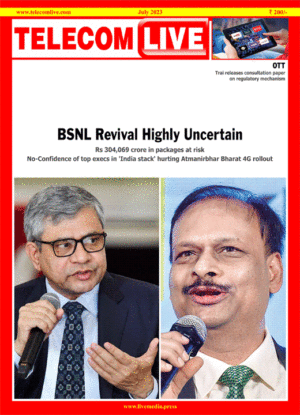COAI has submitted a 7-point reform agenda for the long-term financial viability of the sector to the government. The letter written to the top functionaries of telecom, finance ministries and the PMO is mainly related to revenue and license conditions. The apex industry body wants reduction in levies from the current tally of 32 per cent which includes license fee, USOF levy, SUC & GST. Many of these demands can be considered favorably as they are not violative of any conditions and they will free up resources for telcos to be reinvested in networks. However, there are concerns related to GST reductions, its transparent reporting for pre-paid subscribers (95 pc of total subscriber base) and how it will translate into consumer benefit.
Extension of spectrum license validity to 40 years from the present 20 years, without any additional charge, is a reasonable expectation of the industry and will improve cashflows. In our country, the formula for fixing reserve price of spectrum is outdated, static and not reflective of market realities. Earlier, when this was held as a fair methodology, there were many operators, spectrum bands on offer were few and demand was high. But, now there are few operators, new bands have come up and there is lot of spectrum availability. In such a situation, the old formula is keeping the reserve price of spectrum artificially high and preventing a rational price discovery. As a result, a lot of spectrum could not be sold despite repeated auctions. Unsold spectrum is also a revenue loss for the government.
Other issues raised by COAI are reduction of interest rates to repo rate level of 4 per cent, revision of AGR definition from prospective date to exclude earnings from non-telecom operations, doing away with the requirement for bank guarantees and audit of accounts & services as these are undesirable costs. It has also asked for fixation of floor tariff for data services, this should not be agreed to unless there is sufficient proof of predatory pricing. Read the complete analysis of the industry’s reform agenda in this edition’s cover story.




